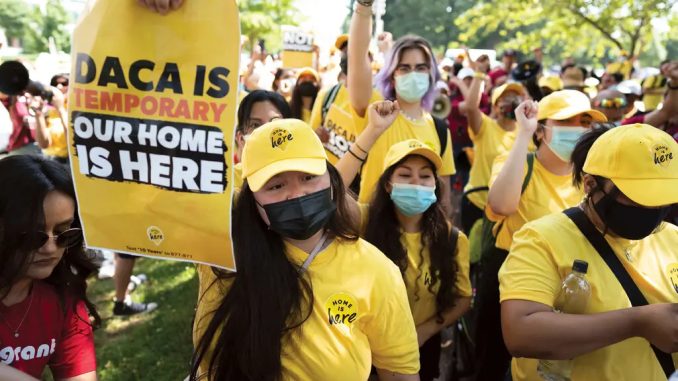
By Shlomie Katash
On Wednesday, Oct. 5, the 5th Circuit Court of Appeals affirmed a 2021 decision that declared the Deferred Action for Childhood Arrivals unconstitutional. Dreamers, who are declared legal residents that renew their DACA status every two years, will be able to maintain their residency status, but the DACA program will no longer accept new applications.
The constitutionality of DACA has remained contested since President Barack Obama instituted the program in 2012. President Joe Biden recently issued a new DACA rule in an attempt to clarify the situation by codifying existing codes, but the court’s decision has continued the program’s legal murkiness.
CUNY’s Chancellor Félix Matos Rodríguez on Oct. 9 released a Twitter thread calling on Congress to “provide a path to U.S. citizenship for all undocumented young people.” Speaking to the undocumented student population, he stated, “CUNY doesn’t regard the protection of undocumented immigrants as a political issue; for us, it’s personal.”
Rodríguez encouraged students to reach out to immigrant student success centers at Brooklyn College and John Jay, and urged those with DACA status to reach out to CUNY Citizenship Now, a CUNY program that provides free citizenship and immigration law services.
Students that applied for DACA benefits during the 5th Circuit Court’s proceedings are finding that their applications are on hold, preventing them from acquiring important documents necessary for finding work.
“They see themselves in this kind of limbo,” Jesus Perez, Director of BC’s Immigrant Student Success Office, told the Vanguard. “They want to move forward because their lives are on hold […] it’s really tough for them to move forward without these documents and their status of DACA.” Perez explained that having DACA status allows recipients to work legally, consider their careers, and in certain circumstances, grant them access to classes that require a social security number.
On campus, ISSO, located in Roosevelt 117, helps students navigate immigration law and offers several other services for immigrant students no matter their status. With its connections to different offices and the aid of 40 BC faculty members across departments, ISSO implements a “holistic approach” to supporting students. ISSO also provides students and their families access to a lawyer who comes into the office every week.
“Everybody has different circumstances and the law changes all the time, so it’s important to come to a lawyer and say, listen, this is what happened to me […] and they can look at the different options,” Perez emphasized.
While waiting for a resolution – either from the courts or from Congress – Perez noted that students could help those that are undocumented by becoming allies and raising their concerns to elected officials and the media. “Your vote matters. Your voice matters,” Perez said. “Allies matter. We really welcome anybody who wants to join this movement, who wants to support our cause, and make society better.”
